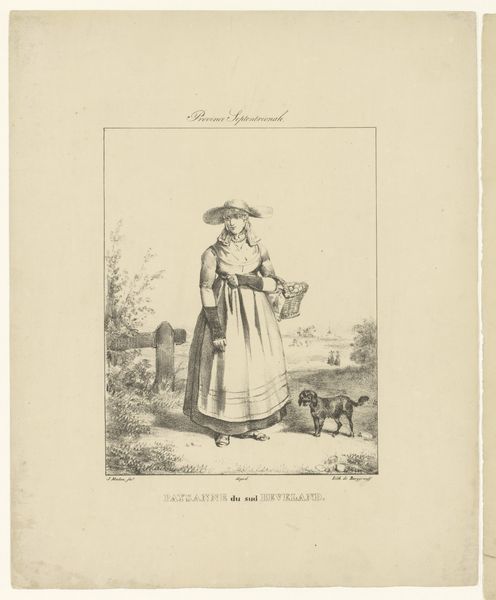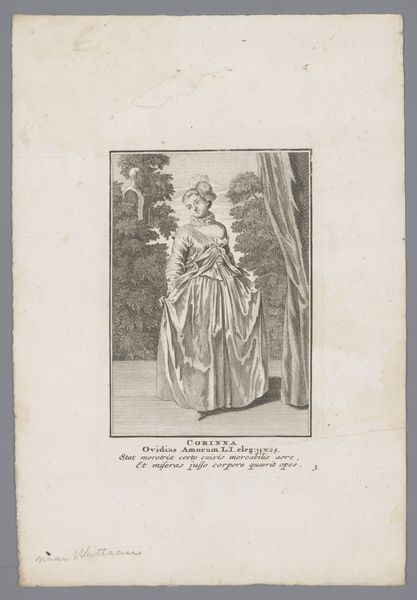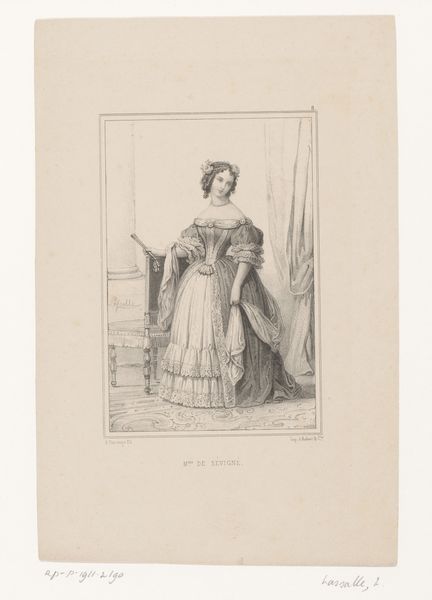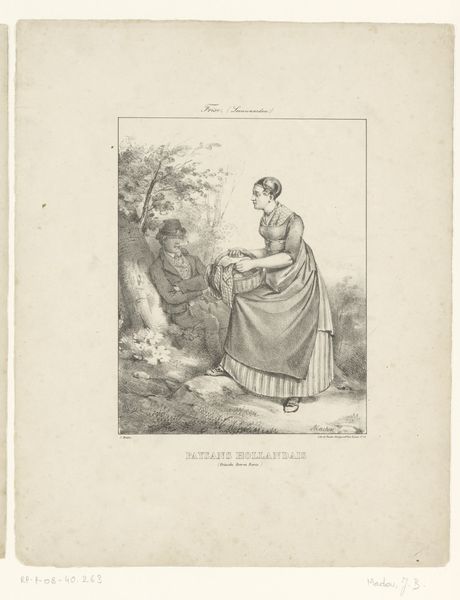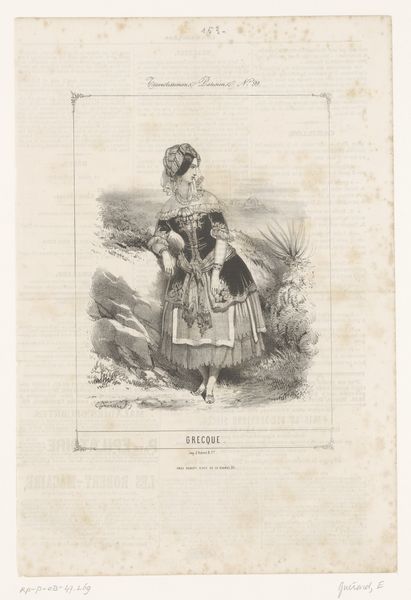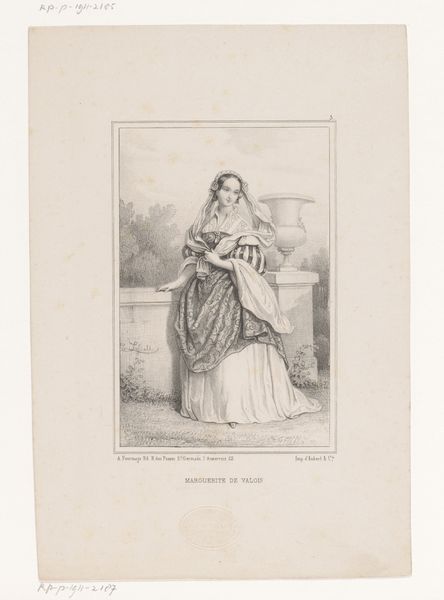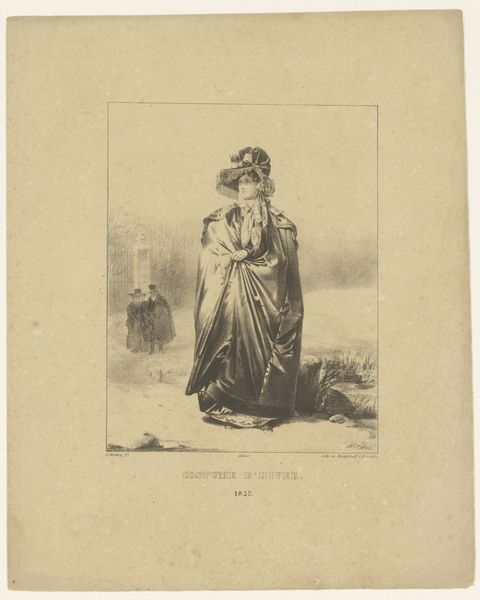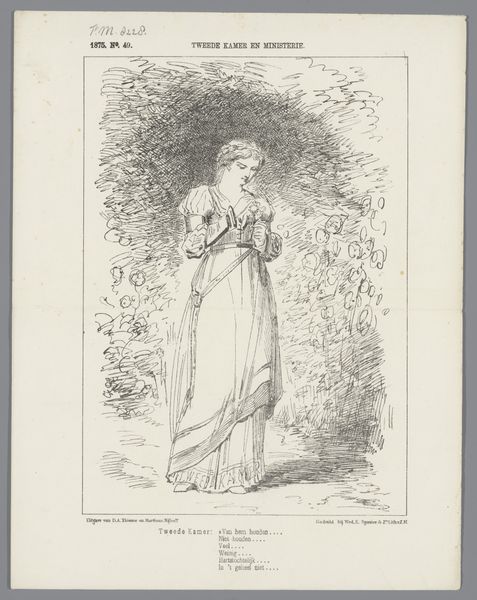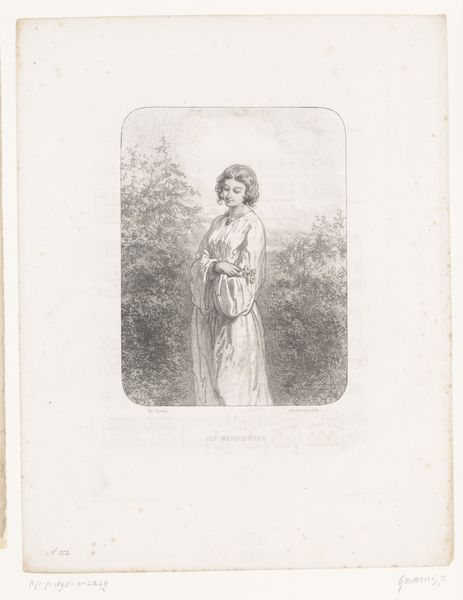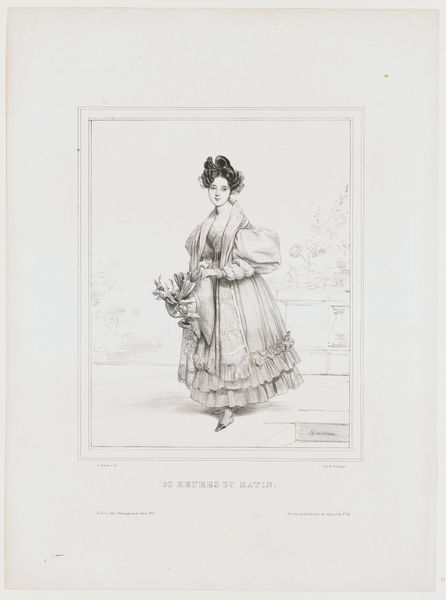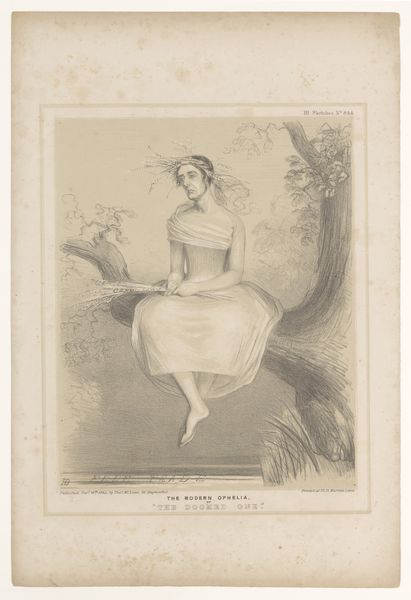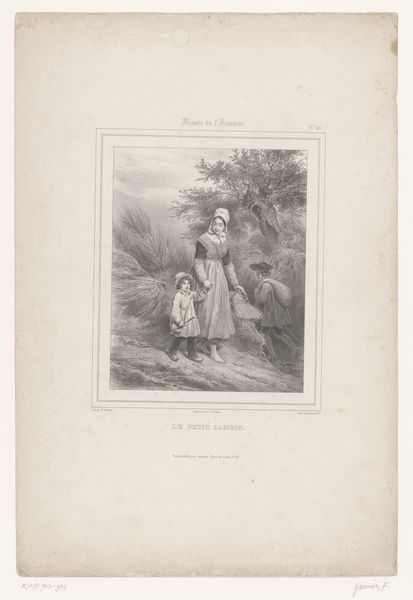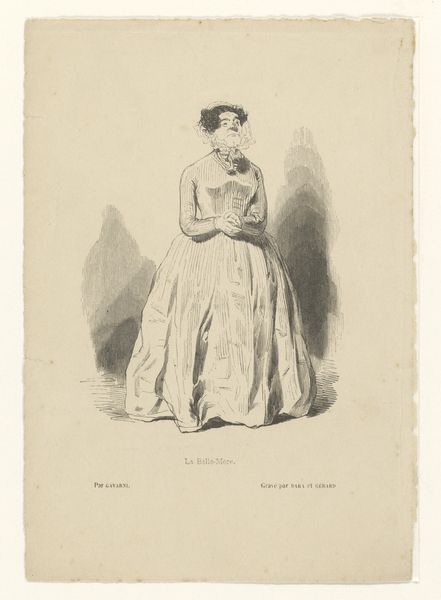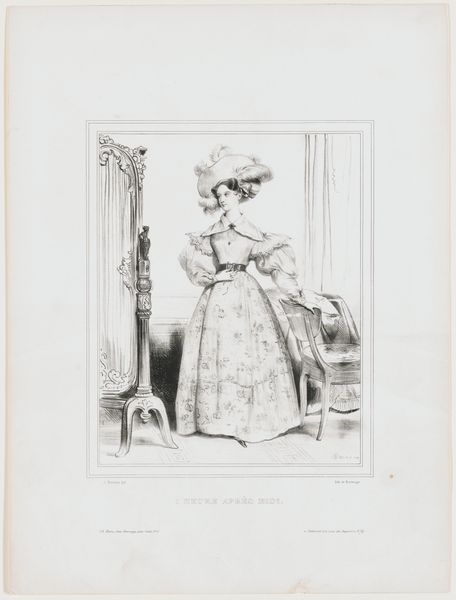
drawing, print, engraving
#
portrait
#
drawing
# print
#
old engraving style
#
romanticism
#
genre-painting
#
engraving
Dimensions: height 343 mm, width 275 mm
Copyright: Rijks Museum: Open Domain
Jean-Baptiste Madou's drawing captures a young woman from Zaandam, her attire speaking volumes about her identity. The most striking element is her headwear, a complex construction that tightly frames her face. Such head coverings have a long history in European folk traditions, often signaling a woman's marital status, region, or social standing. In many cultures, covering the head signifies modesty or piety, connecting the wearer to a sense of tradition and community. In Northern Europe, similar styles appear in 16th and 17th-century portraits, often embellished with lace and intricate designs. This motif of the covered head transcends mere fashion, touching on deeper psychological themes. It represents both protection and constraint, mirroring the dual roles women have historically occupied in society. The reappearance of this symbol across centuries reveals the enduring power of visual language to communicate complex social and emotional narratives.
Comments
No comments
Be the first to comment and join the conversation on the ultimate creative platform.
